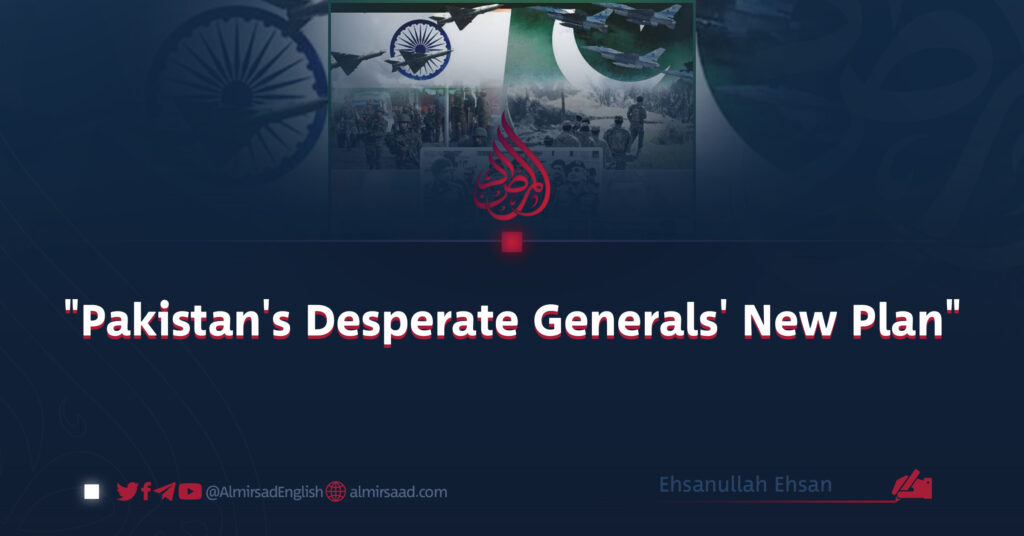Ehsanullah Ehsan
Pakistan, as a state, has compromised all human, ethical, diplomatic, and Islamic principles in pursuit of its own interests. Nevertheless, Pakistan has not emerged as a robust and stable state, nor is it held in high esteem among the countries of the region.
The policies of Pakistani rulers, particularly the military generals, have undermined Pakistan’s Islamic identity. After the events of 9/11, Pakistan chose to align itself with the United States, resulting in the shedding of blood of their Afghan brethren, even at the expense of straining its relations with Afghanistan. This alignment has disrupted the longstanding cultural and historical bonds between the two Muslim nations.
Betrayal and opportunism characterize the actions of Pakistan. The country handed over its own citizens, such as Aafia Siddiqui, and thousands of Afghan refugees to the United States for financial gain. Furthermore, it violated diplomatic norms by arresting a recognized ambassador.
In spite of all its violations and evils, Pakistan still shamelessly claims to have good relations with Afghanistan for its own interests.
It has consistently claimed that it shares many similarities with Afghanistan, being fellow Muslims and neighbors with common traditions, culture, and language. However, in essence, Pakistan has not upheld the principles of being a neighbor to Afghanistan, nor of Islam, tradition, culture, or neighborly relations.
After the Islamic Emirate of Afghanistan’s victory in 2021 and its return to power, Pakistan presented its wishlist and raised it to the leadership of the Islamic Emirate of Afghanistan, just like other governments did. However, these sincere representatives of the Afghan people bluntly rejected it, stating: “The interests of Afghanistan are our priority.” This clear response, based on justice, shattered the hopes of Pakistani rulers and generals.
Subsequently, the frustrated Pakistani generals resorted to using nefarious tactics to seek revenge and foment turmoil in Afghan territories. They established logistic support centers, provided financial aid, and set up training facilities for ISIS, in addition to identifying targets within Afghanistan for ISIS operations. As a result, ISIS carried out attacks on these targets, allowing the Pakistani generals to revel in the loss of Afghan lives.
To assert complete control over the foreign faction known as ISIS, Pakistani generals have devised a new strategy which involves infiltrating and appointing their own operatives to assume key positions within the regional leadership of ISIS, specifically the Lashkar-e-Taiba, an organization that they established using government resources.
Consequently, members of the Lashkar-e-Taiba are being recruited into the ranks of ISIS.
Lashkar-e-Taiba and Daesh being of the same ideology and creed are acceptable to each other, it is easy for Pakistani generals to integrate them into each other.
ISIS, whose centers and training centers are active in Balochistan to Bajaur and Dir under the protection of the Pakistani army, now Lashkar-e-Taiba has become a new base for Pakistan’s fighters.
Pakistani generals are also happy that the Kashmir Jihad organizations that were left jobless after the loss of Kashmir have found a new front to use by hijacking ISIS to Lashkar-e-Taiba. They can be converted into Daesh who will be subservient to them in every way.
Lashkar-e-Taiba members of Khyber Pakhtunkhwa have been given the task of populating Daesh centers in Khyber, Orakzai, Bajaur and Dir, while Lashkar-e-Taiba of Punjab has been given the task of keeping Daesh centers and training centers in Balochistan where Daesh is located. The present leadership including Shahab-ul-Muhajir is residing under the protection of Pakistan.
In the plan prepared by Pakistani generals for unrest in the region, ISIS will play an important role in the hands of agents of Pakistani institutions of Lashkar-e-Taiba.
Now, it is evident that Pakistan has completed its preparations to incite turmoil and violence in the region in pursuit of its own interests.
